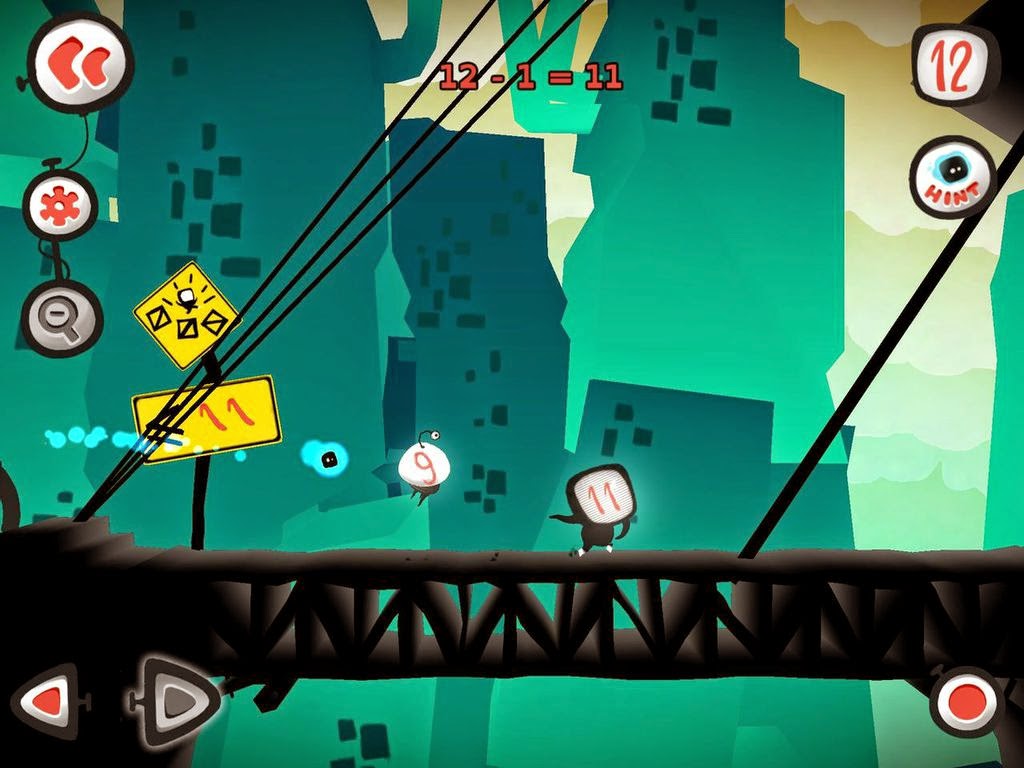Amplify
launches Twelve A Dozen as a Consumer Serious Game
At the early stages of the "Serious Games" movement,
in many cases they were made available to users free of charge or distributed
within the client organization. Serious Games used to lack the budgets of
entertainment games, so producers usually did not develop their own game
engines (which could cost upwards of $5 million and 3-5 years of time), but
instead leased popular game engines for game play. Serious Games were made for
a fraction of the cost and time of games for the entertainment market, with
budgets in the range of $400,000-$1 million being typical, and a development
time of perhaps a year.
However, budgets for certain applications have
increased over the years and we have seen some "Serious Games" being budgeted in
the $10 million range and above. Growing budgets have translated into a growing
demand for funding, mostly because the predominant model in Serious Games had
been "work-for-hire", which did not leverage on economies of scale.
Early adopters had focused heavily on advances in design, pedagogy, and
technology and sparingly on business development models.
Since its inception, the market has been
essentially B2B oriented, with the majority of projects falling into the
"work-for-hire" or “single-use efforts” categories like those seen in
traditional business software industries.
That scenario is about to change, driven by the
consumer market.
According to Ambient Insight LLC recent report "2013-2018
North America Mobile Edugame Market,", the revenues for Mobile Educational
Serious Games in North America shall spike to $410.27 million by 2018, which
translates into a five-year compound annual growth rate (CAGR) of 12.5%. Consumers
are by far the major buyers of mobile edugame digital content in Canada and US
and they shall continue to dominate throughout the forecast period. The
majority of consumer purchases fall into the two ends of the age spectrum: math
and language learning for young children (targeting parents through a B2C
model) and brain trainers and brain fitness apps for elders.
As we know, unlike large organizations, consumers
are fast-moving when adopting new paradigms and Amplify, the New York-based education
start-up, seems to be paving the way for a direct-to-consumer Serious Games market.
Calling it an “experiment”, Amplify launched this
week its first direct-to-consumer Serious Game on Apple’s
App store - Twelve a Dozen,
a puzzle-platformer that takes players on a journey to master the “order of
operations,” one of the prerequisites to conquering algebra.
As recalls Jordan Shapiro on Forbes.com, last year,
when Amplify announced their game portfolio, CEO Joel Klein said: “These games
will improve learning not because kids have to play them in school, but because
they want to play them in their own free time.”
“Unlike the other big players in the Educational
Serious Games space, Amplify’s strategy has always been to capture kids’ free
time rather than build games for the classroom,” adds Shapiro.
Twelve a Dozen puzzle-platformer
Hidden
deep behind your display screen is a tiny speck containing a whole universe of
numbers. And inside that universe, an even tinier speck—a place called
Dozenopolis, where a character named Twelve learns she must solve math puzzles
to save her city from ruin
In
the game, players guide the actions of the heroine, Twelve, as she sets off on
an adventure to rescue her family during a cataclysmic event befalling the town
of Dozenopolis. Along the way, Twelve and her companion Dot explore the
universe and solve mathematics puzzles. Dot is a decimal point and the helper
NPC (Non-Player Character). She’s narrated
by Lucy Montgomery - an English comedian, actress and writer. Twelve also
receives help from the ever-willing “Numbles,” number characters that follow
her in a conga line
Twelve a Dozen’s
puzzles revolve around manipulating numbers. Starting with simple calculations
the game eventually covers more complex mathematical operations to unlock the
powers hidden within digits and overcome the game's tricky puzzles and
dangerous environments (Twelve A Dozen has also a “rewind” feature that
lets players undo mistakes and have fun exploring new math concepts)
Twelve
a Dozen is Amplify’s first product to enter the consumer
market. It is one of a pack of about 30 new games on English Language Arts (ELA),
math and science (STEM) that Amplify will release this October to
complement its tablet-based middle-school curriculum.
Amplify threatens to become a major force in Educational
Serious Games over the next few years as it works with several top independent
games studios to create content for the tablet.
It has already signed Pittsburgh-based Schell Games and Zachtronics, the Seattle creator of Infiniminer, the original
game upon which Minecraft is based. Other developers include the British studio
Preloaded,
New York-based Highline Games, which created the hit iPad spelling game
W.E.L.D.E.R., Ira Fay Games and Seattle-based Strange Loop, which created the
liquid-physics puzzle game Vessel.
The developer of Twelve a Dozen is London-based
Bossa Studios, an indie games
developer and publisher founded in 2010. Creators of the critically acclaimed
“Surgeon Simulator,” BAFTA-winning “Monstermind” and the BAFTA-nominated
“Merlin: The Game,” the company has brought a new take on how indie and social
games are played and discovered.
Former New York City Schools Chancellor Joel Klein,
who is now Amplify's CEO, said the company decided to break out the new puzzle
game to test the water for other possible commercial releases.
“Our strategy has been focused on schools and
school districts, but the more we showed our games to people from various walks
of life, we heard the same thing, How can I get these for my kid?” Klein
says. “So we decided to see if people are as crazy about these games as we are.
If the commercial launch of Twelve a Dozen is well received, we’d want
to consider making some of our other games available to consumers as well.”




